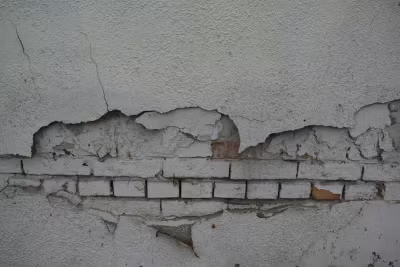In the picturesque landscapes of Colorado, homeowners often embark on home improvement projects to enhance the beauty and functionality of their properties. However, amidst the excitement of renovation, there lurks the potential for scams and fraudulent practices that can leave homeowners devastated. As leading advocates for consumer protection and construction defect law in Colorado, our firm is committed to empowering homeowners with knowledge to recognize and avoid these scams. In this comprehensive guide, we'll shed light on some of the most common home improvement scams in Colorado and provide actionable tips on how to safeguard yourself from falling victim to them.
Bait-and-Switch Tactics: Homeowners may encounter contractors who initially offer enticing deals or low quotes to win the job, only to escalate costs later by claiming unforeseen issues or suggesting upgrades. To avoid falling for this tactic:
Research multiple contractors and obtain detailed quotes.
Clearly outline project specifications and budget constraints in writing.
Beware of significantly lower bids compared to competitors, as they may indicate hidden costs.
Unlicensed Contractors: Hiring unlicensed contractors is not only risky but also illegal in many cases. These individuals often lack the necessary skills, insurance, and accountability, leaving homeowners vulnerable to shoddy workmanship and potential legal liabilities. Protect yourself by:
Verifying contractor licenses through your local town, county, or municipality's website.
Asking for proof of insurance and references from past clients.
Avoiding cash-only transactions and insisting on written contracts with clear terms and warranties.
Storm Chasers: Following severe weather events such as hailstorms, unscrupulous contractors known as "storm chasers" may canvass neighborhoods, offering quick fixes for storm damage. While some legitimate contractors may provide emergency services, others exploit homeowners by:
Pressuring for immediate repairs without proper assessment.
Offering to waive insurance deductibles or promising unrealistic results.
Failing to obtain necessary permits or adhering to local building codes.
Upfront Payment Scams: Contractors who demand substantial upfront payments or full payment before commencing work should raise red flags for homeowners. These advance payment scams often result in incomplete or substandard work, leaving homeowners with little recourse. Protect your investment by:
Negotiating payment schedules tied to project milestones.
Withholding final payments until satisfactory completion and inspection.
Utilizing payment methods that offer buyer protection, such as credit cards or escrow services.
Door-to-Door Solicitations: Beware of unsolicited contractors who show up at your doorstep offering spontaneous home improvement services. While some legitimate businesses may engage in door-to-door marketing, it's essential to exercise caution and:
Ask for identification and company credentials.
Decline high-pressure sales tactics or limited-time offers.
Take time to research the contractor's reputation and verify their legitimacy before agreeing to any services.
Material Substitution: Dishonest contractors may substitute inferior materials or cut corners to maximize profits while compromising the quality and longevity of your home improvements. To prevent material substitution scams:
Specify preferred materials and brands in your contract.
Request documentation for all materials used, including warranties.
Monitor the progress of the project and raise concerns if deviations from the agreed-upon plan occur.
Lack of Written Contracts: Verbal agreements leave room for misunderstandings and disputes, making it crucial to insist on comprehensive written contracts for all home improvement projects. A legally binding contract should include:
Project scope, timeline, and payment terms.
Specifications for materials, labor, and permits.
Dispute resolution procedures and warranties for workmanship and materials.
Home improvement scams can have devastating financial and emotional consequences for homeowners in Colorado. By staying informed and vigilant, you can protect yourself from falling victim to these fraudulent practices. Remember to research contractors thoroughly, obtain written contracts, and be wary of red flags such as high-pressure sales tactics and upfront payment demands. If you suspect fraudulent activity or encounter construction defects in your home, don't hesitate to seek legal guidance from an experienced consumer protection lawyer. Together, we can safeguard the integrity of Colorado's housing market and ensure that homeowners receive the quality and transparency they deserve.
Hollington Law Firm is dedicated to advocating for homeowners' rights and holding negligent contractors accountable for their actions. Contact us today for a consultation to discuss your legal options and protect your home from scams and defects.
Have Questions About Consumer Protection?
Our experienced construction defect attorneys are here to help. Schedule a free 15-minute screening call to discuss your situation.

